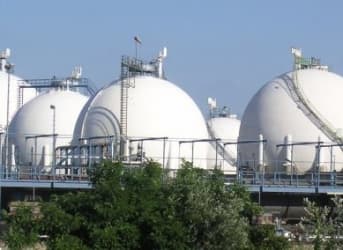While Russia’s shifting global tendencies have been dubbed a pivot eastward, economic and political realities have shown the pivot to be far from discriminatory. Russia cares little if Germany or China, or neither meets its demand needs – just, that they are met. Toward that end, Russia has also been eyeing North Africa, more specifically, Egypt. With its rapidly growing oil and natural gas consumption and stumbling domestic production, the country was supposed to be a promising, long-term market. It still is, but for different reasons and for different parties.
On August 30, Italian major Eni announced the discovery of a supergiant gas field in the Mediterranean Sea off the coast of Egypt. The Zohr field is estimated to hold approximately 30 trillion cubic feet (tcf) of natural gas (5.5 billion barrels of oil equivalent), though Eni believes more could be found. As it stands, the potential (read: not yet proven) reserves represent the largest discovery in Egypt and the Mediterranean, topping Israel’s 16-trillion-cubic-feet Leviathan field. Related: Coal Isn’t Dead Yet
For Egypt, the find is nothing short of a game changer. Domestic natural gas production has fallen some 16 percent since 2013 and exports are down roughly 70 percent since 2009. Conversely, domestic energy consumption is up more than 50 percent over the last decade, leading to widespread blackouts and social unrest. Nevertheless, caution is the word of the day.
Production in Egypt isn’t declining for a lack of gas. Instead, fuel and electricity subsidies, together with gas payouts more than 60 percent below the international average, have drained government coffers, limited investors’ revenues, and stalled previously promising projects. Though Eni – after securing higher gas prices from Egypt in June – is ready to fast-track development. Related: Canada’s Oilfield Service Sector Battered By Low Prices
Eni CEO Claudio Descalzi sees drilling beginning in 2016 with production commencing shortly afterwards. Peak output may reach up to 3 billion cubic feet per day, or roughly 68 percent of current production. According to Descalzi, if fully developed, Egypt would not have to import gas for at least 10 years. Count Russia among the players who hope that kind of success does not transpire.
In March, Russia’s Gazprom and Egypt’s Egyptian Natural Gas Holding Company (EGAS) signed a 5-year LNG supply deal. Per the agreement, Gazprom is to deliver 7 LNG cargoes per year – the first of which was already received. More recently, Rosneft signed a similar 2-year, 24-shipment LNG supply agreement with EGAS to begin in October. Absolutely, the deals will be fulfilled – and Egypt’s entrance into Russia’s Eurasian Economic Union promises further cooperation in oil and nuclear capacities. But, long-term, the Zohr discovery limits Egypt’s potential as an export market and may cause problems for Russia further downstream. Related: Why So Much Oil Price Volatility? Blame The Speculators
In 2013, essentially the country’s last year of meaningful exports, Egypt exported 130 billion cubic feet of LNG. 79 percent of those exports sailed east to South Korea, Japan, China, and other markets in Asia, while, Europe, once the country’s primary export destination, received a miniscule 130 bcf. Admittedly, those aren’t exactly fear inducing numbers for Russia – 130 bcf is roughly what Russia sent to Austria in 2014 – but Egypt was supposed to be a customer, not a competitor.
To be sure, Egyptian exports are unlikely to explode on the scene anytime soon; 2020 remains an optimistic target under current domestic supply and demand trends. But, even a modest return to form – say 2011, when Egyptian LNG accounted for 5 percent of EU-28 LNG imports – presents some headaches for a Russia fighting to maintain and/or expand its market share on all fronts. Moreover, continued delays, and a general lack of enthusiasm for Russia’s Turkish Stream pipeline, favor the ever-expanding and ever-competitive field.
By Colin Chilcoat of Oilprice.com
More Top Reads From Oilprice.com:
- Productivity Gains Prevent Collapse Of U.S Light Tight Oil Production
- We Could See An Economic Collapse As Debt Defaults Pile Up
- Sun Edison’s Stock Has Been Slammed. Is the Sell Off Justified?



















It's certainly bad news for Delek and Noble, who are potentially losing a market due to Israeli political inaction. But, I wouldn't go so far to say that US geo-political action is the only thing preventing Russia from exporting more gas. Diversification and a desire for a freer market have greater influence than any anti-Russia sentiment. While I don't disagree that Russia will find other markets, more gas and from a wider group of suppliers hurts Russia's leverage and may force some uncomfortable price points in the future.